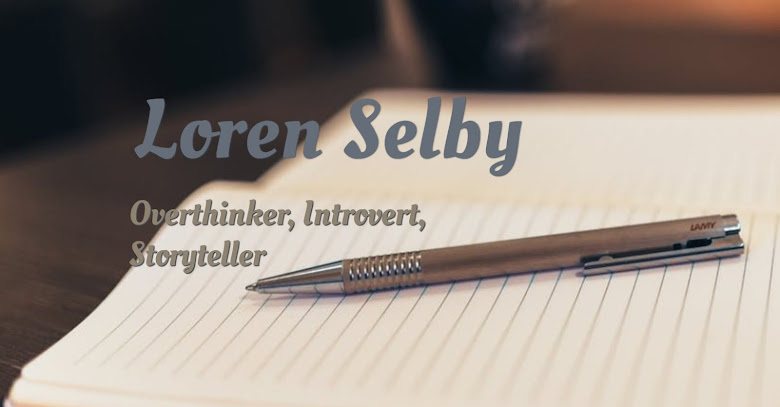I have to know the 'why' behind things – not just the 'how.'
This
sort of questioning is common for my brand of introversion. (It's also why INTJ's get labels like Mastermind and Architect.) Event B happened
because of event A, but why did that relationship exist in the first
place? What was it's purpose?
What's obvious for many people, doesn't always click for me. My journeys to have things make sense often take the long way around.
Once
upon a RPG, my friends and I were talking about character
design, particularly how to build backstory for D&D characters.
Some people just play the same 'person' but with a different face and
skills. Others draft up a fifteen page genealogy/biography. Some
have a pool of personalities that pick from whenever they build a new
warrior. Still others play... whatever lets them max their dice pool?
Anyhow,
one of the guys explained that to make a functional insane character he would just
tweak one of their basic emotional drives. (Sane people don't repeatedly run into goblin lairs.)
“Oh,
you mean Mad, Bad, Sad, Glad?” I piped up, seeing where this is
going.
“Basically,”
he said. “I either exaggerate one or remove it.” Then went on to
explain how each of this current builds were changed. A was always
Mad and was aggressive and overly defensive when challenged. B never
felt Bad and so had no sense of guilt or respect for authority.
“What
I haven figured out yet is how someone with no sense of Sad would
play,” he admitted. He wasn't completely sure what the 'sad'
response was for.
Come
to think of it, I wasn't sure either. The game night rolled along,
but that question settled in the back of my mind. What is the purpose
of Sad?
The
feelings of Sad and I have a complicated history. My childhood had
plenty of emotional upsets. Grief is no stranger to me. Plus, I've
dealt with depression since my teen-years.
My
health issues play merry-hob with my bio-chemistry. No amount of
comedy, purring cats or good food will offset the crash from a three
hour migraine. The glands can not make happy juice, period. 😫
To
make things yet more complicated, I viewed my Sad like a reoccurring
glitch. You medicate and make yourself move. I'd years of people
'telling' me Sad was a dumb response.
Like
most autistic children, I had the misfortune of getting bullied, by
both children and adults. Like most children, I got dangerous advice
like 'just quit reacting and they'll go away,' 'oh, you're just too
sensitive,' and 'life's not fair. just deal with it.' Acting Sad was
disruptive and selfish.
Plus,
what were sad responses actually good for? Your ancient hunter/gather
hominid didn't have wiggle room for bad reflexes. Mad gives your
extra energy to fight or run. Bad helps you remember your mistake and
avoid repeats. Glad is the body's way of say 'Do it again! Do it
again!” Sad, you just... make eyewash? (Once you're weaned, crying
loudly attracts curious predators as often as help.)
The
purpose of Sad didn't make sense. So naturally, I keep revisiting
this puzzle every time my emotions were on the down swing. When I'm
Sad, I am not just off my game. I'm bone-achingly weary. Why does my
brain have this setting?
The
'Eureka!' moment was a long time in coming. It required a couple of
years of therapy and an odd series of Twitter conversations. (That's
another story😏).
Sad
is like muscle soreness. It's a warning and healing system.
When
you stress or, in my frequent case, sprain a muscle, it hurts for
days. However, pain is not a commentary on your fitness level and
life choices. Pain tells you something is damaged and needs
attention.
There's
swelling, stiffness, bruises and you just can't preform at your
original level even if you try to push through. It's annoying. It
limits you. ...and it's actually a good thing?
The
purpose of pain is keep you from stacking more damage. Recovery isn't
a passive activity. You need good food, rest, and plan to re-balance
most of you commitments. (I've rolled an ankle right before
Christmas. Things got complicated, quickly.)
Sad
acts as a limiter. Disappointment, grief, the 'Blues,' all of them
are messages that there's mental or even physical strain. It's a sign
to cutback on stressful and risky ventures. Sad is supposed to
make you slow down.
So
what did this revelation mean for me personally? Well going back to
that rolled ankle, cutting corners during recovery is NOT wise. You
can't just pop an aspirin and limp through your workout routine.
Argo, medicating a flare-up of depression and forcing high
productivity isn't wise either.
This
is a hard truth to swallow. I'm not feeling Sad all the time because
I'm 'too sensitive' or 'lack drive.' I'm still feeling Sad because
my recovery isn't done.
The
purpose of Sad isn't to make me look pathetic enough for others to
decide to help, or target for a quick snack. The purpose of Sad is to
make me rest and take care of myself.
(😣 Yes,
I felt like face-palming when it finally clicked. This is one of my
primary emotions and it took YEARS to figure out what it was for.😣)
